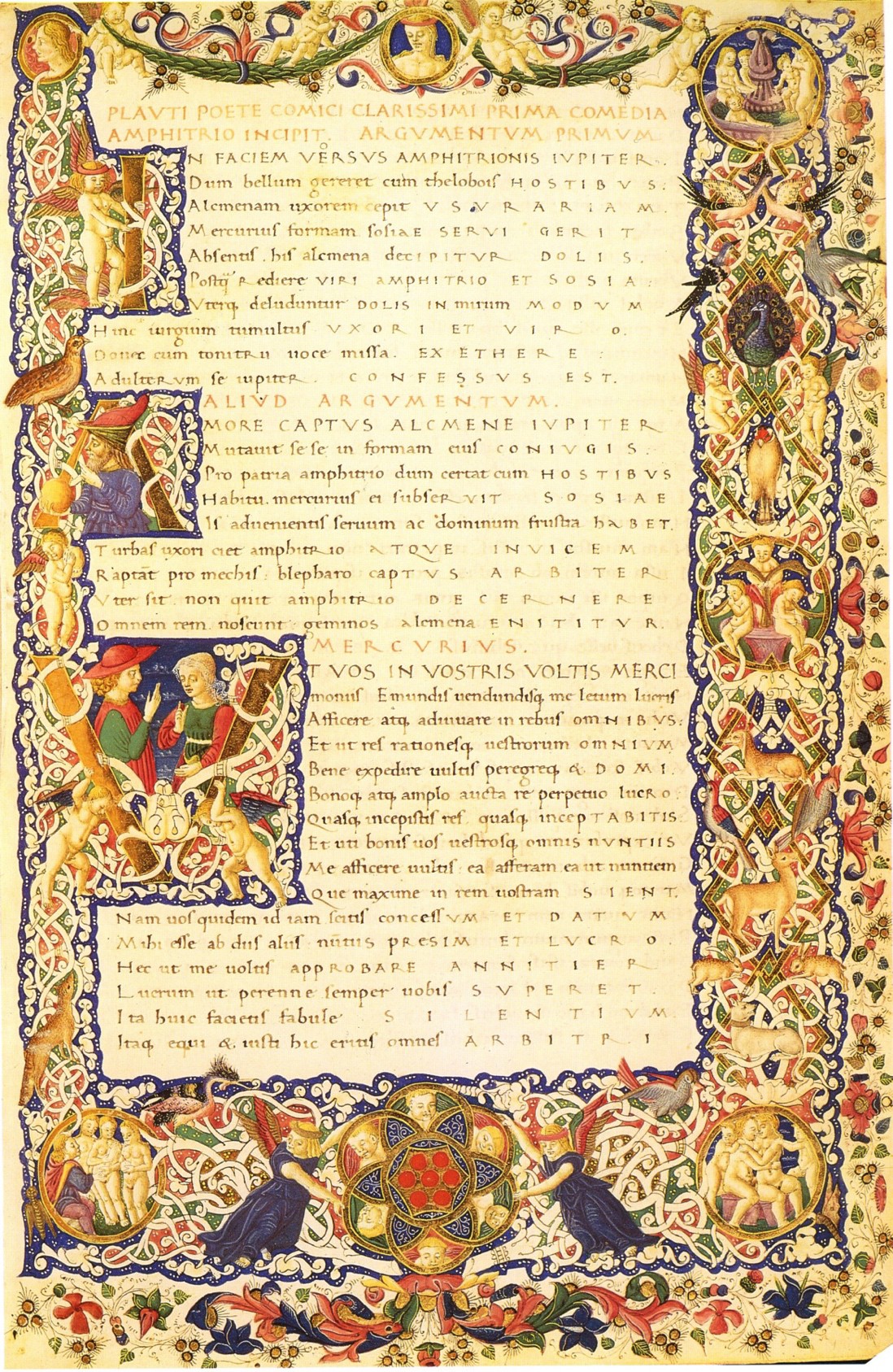5 Tenses
“Now, because these sentences are true now, in the present, their verbs are called Present Tense. But there are also forms that let you say something was the case in the past. These forms of sum are called the forms of the Imperfect Tense. They all begin with the letters ERA-:”
Forms of sum, Imperfect Tense (D)
SingularPlural
1st Personego eramI wasnōs erāmuswe were
2nd Persontū erāsyou werevōs erātisyou all were 3rd Personis ea id erathe she it waseī eae ea erantthey were
“Mark and translate these into Latin. REMEMBER TO PUT THE PREDICATE FIRST! And copy all the commas and punctuation.”
We were twins. (9)
You were Menaechmus. (10)
It was a bad thing! (11)
I was Messenio, whoever I was. (12)
My name was not Sosicles. (13)“Watch the verb tense!”
“Finally, there are also forms that mean someone or something ‘will be’ so, in the future – forms of the Future Tense. These all begin with the letters ERO, ERI, or ERU:”
Forms of sum, Future tense (E)
SingularPlural
1st Personego erōI will benōs erimuswe will be
2nd Persontū erisyou will bevōs eritisyou all will be 3rd Personis ea id erithe she it will beeī eae ea erunt they will be
“You can mark and translate these sentences now. Again, put the predicate first.” You will not be Latinitas. (14)
You all will be twins. (15)
She will be good, but you will not be. (16)
And my name will be Plautus. (17)
Nōs sumus geminī: ego tū sum, tū es ego. (18)
“Did you notice a pattern in the forms of sum? In all three tenses (Present, Imperfect, Future), the last letters are the same or almost the same. These final letters are called Personal Endings.”
Personal Endings for Verbs (F)
SingularPlural
1st person-m or -ō-mus
2nd person-s-tis
3rd person-t-nt
“NO PIECE OF KNOWLEDGE OF LATIN IS MORE VALUABLE THAN KNOWING
THESE SIX PERSONAL ENDINGS! When you see them at the end of a Latin verb, you will know the person and the number of the verb almost every time you see them.”
“Now let’s take a look at the Latin of the Menaechmi.” She handed me a scroll that contained the words of the play. “First, read the Latin out loud. Take your time.”
I read it out loud. It was very hard. She patted my shoulder, and continued: “Now write these lines in your book – in Latin:”
MENAECHMUS Hello, young man, whoever you are; my name is Menaechmus.
(19)
SOSICLES I was Sosicles, but my name too is Menaechmus. (20)
MENAECHMUS I am Syracusan. (21) SOSICLES I too am Syracusan. (22) MENAECHMUS We are not twins. (23)
MESSENIO But you all are! You all are twins! (24)
SOSICLES Twins! You’re not bad, Messenio. (25)
“Now see? Mox Plautus tū eris, soon you will be a Plautus, who started out writing scripts as simple as this at some point. Of all the plays that he wrote, only twenty still remain; the rest were lost to time. These are the oldest texts of Latin to survive in complete form, copied for hundreds of years by hand, and reproduced by machine ever since the year 1500. This play, the Menaechmi, was the inspiration for Shakespeare’s Comedy of Errors. When Shakespeare was a student in school he was reading his Plautus in Latin.”
But my hand was sore from writing so much, and I could not picture Shakespeare. Instead, I rubbed my joints and stared at my fingers, watching them quiver. When I looked up again, I was not on the bleachers, but back home in my bed. My notebook was with me; Latinitas was gone. But I could see her in my mind, in animō, and I waved valē, goodbye.
 2. An illuminated manūscrīptum (manū ‘by hand’
2. An illuminated manūscrīptum (manū ‘by hand’
scrīptum ‘written’) of Plautus’ comedy The Amphitryo from the fifteenth-century. The original scripts of Plautus’ plays, like the original texts of most ancient literary works, are long gone; what still survive are copies made in various parts of Europe roughly between 500 and 1500 CE.